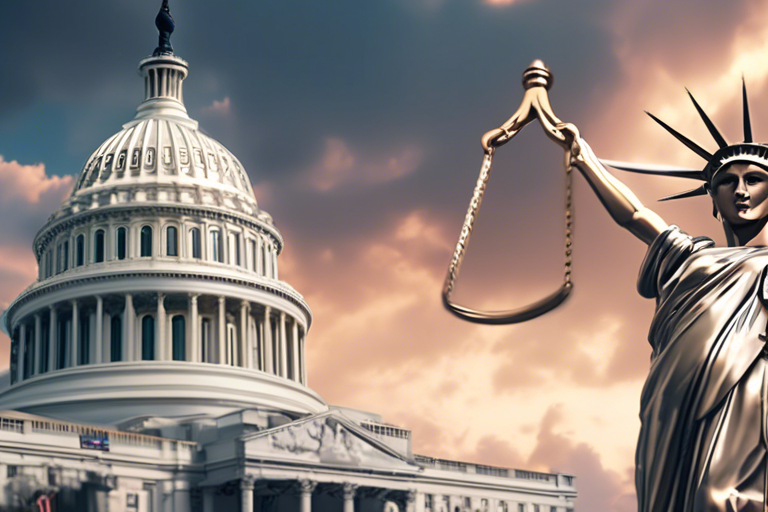Exploring Blockchain Technology for National Security: US Senate’s Call to Action 🛡️
The United States Senate Committee on Armed Services recently recommended investigating the potential applications of Blockchain technology to bolster the country’s national security. In a groundbreaking move, the Committee issued a report directing the Department of Defense (DoD) to explore the emerging technology and its possible benefits within the defense sector.
The US Senate Military Committee’s Proposal 📝
The US Military Senate Committee unveiled the National Defense Authorization Act (NDAA) for the fiscal year 2025. Within this comprehensive report, the committee allocated next year’s finances for military activities of the Department of Defense and military construction projects.
- The NDAA outlined the evaluation of blockchain technology for supply chain security and other national security functions.
The committee emphasized the immense potential of blockchain technology to enhance national security, particularly in fortifying defense supply chains against corruption and data manipulation:
Blockchain technology has the capacity to elevate the cryptographic integrity of defense supply chains, enhance data integrity, and mitigate the risk of data manipulation or corruption by adversaries.
Furthermore, the US Senate Military Committee underscored the significance of data-centric security, transparency, accountability, and auditable supply chains in fortifying US national defense and economic competitiveness.
Need for Regulatory Clarity in Achieving Global Leadership 🌐
The committee instructed the Department of Defense to explore leveraging blockchain technology to meet national security objectives and create secure, transparent, accountable, and auditable data pertaining to supply chains.
- The Secretary of Defense must deliver a briefing to the committee by April 1, 2025, evaluating the potential applications of blockchain technology for supply chain management within the Department of Defense.
- The report outlined specific areas to be covered in the briefing, including the advantages and risks of integrating blockchain technology in supply chain monitoring and management.
- Analysis of the current status of blockchain adoption in national security applications within the DOD and defense industrial base is also mandated, along with resource estimates for these initiatives.
By the stipulated deadline, a plan for pilot programs or research and development efforts must be developed to explore blockchain technology’s utilization in the defense sector. Additionally, an examination of China and Russia’s utilization of blockchain technology is on the agenda.
Ultimately, the briefing must offer recommendations to foster the advancement of blockchain technology within the Department of Defense, including proposals for legislative or regulatory measures to integrate blockchain technology for bolstering supply chain transparency and auditability.
The Impact on the Crypto Industry and Regulatory Hemispheres ⚖️
The recommendations put forth by the US Senate Military Committee underscore the necessity for clear frameworks to cultivate the nation’s industry. Many policymakers advocate for a more conducive regulatory environment in the US to successfully nurture the crypto sector.
- As the upcoming elections loom, the industry has garnered support from a host of politicians due to these efforts.
- US Congress members and industry leaders have vocalized the regulatory hurdles faced by crypto businesses in the United States.
Hot Take: Embracing Blockchain for Enhanced National Security 🚀
The United States Senate Committee on Armed Services’ call to explore blockchain technology for national security purposes signifies a significant leap towards leveraging innovation to safeguard the nation’s interests. By considering the application of blockchain in defense operations, the US can potentially enhance its security measures and fortify its position as a global leader in technological advancements. The adoption of blockchain technology in defense practices could pave the way for robust, transparent, and secure operations, setting a new standard in national defense strategies.





 By
By
 By
By
 By
By
 By
By

 By
By